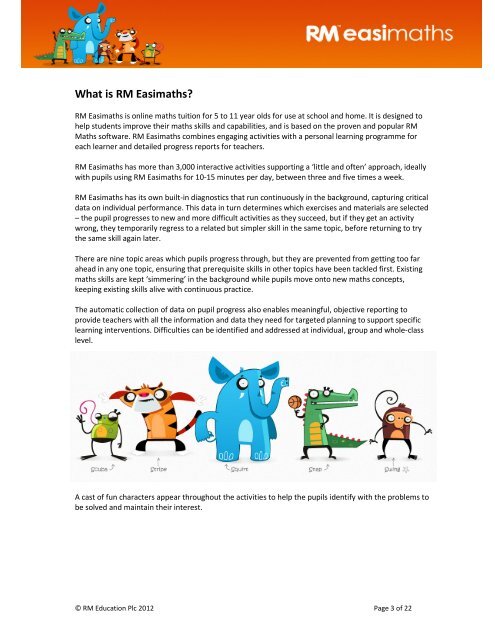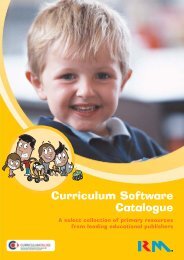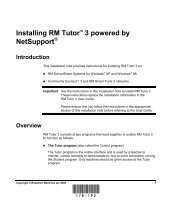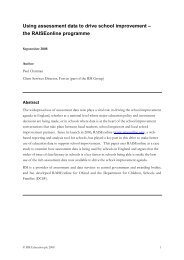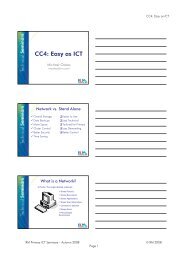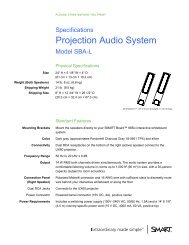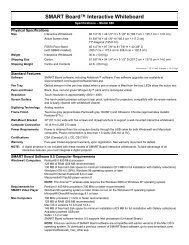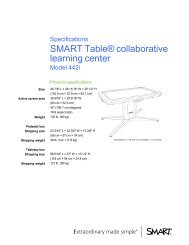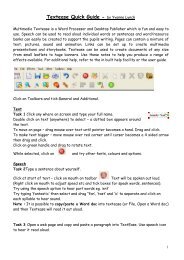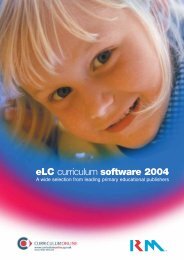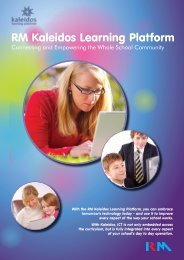Download - RM plc
Download - RM plc
Download - RM plc
You also want an ePaper? Increase the reach of your titles
YUMPU automatically turns print PDFs into web optimized ePapers that Google loves.
What is <strong>RM</strong> Easimaths?<br />
<strong>RM</strong> Easimaths is online maths tuition for 5 to 11 year olds for use at school and home. It is designed to<br />
help students improve their maths skills and capabilities, and is based on the proven and popular <strong>RM</strong><br />
Maths software. <strong>RM</strong> Easimaths combines engaging activities with a personal learning programme for<br />
each learner and detailed progress reports for teachers.<br />
<strong>RM</strong> Easimaths has more than 3,000 interactive activities supporting a ‘little and often’ approach, ideally<br />
with pupils using <strong>RM</strong> Easimaths for 10-15 minutes per day, between three and five times a week.<br />
<strong>RM</strong> Easimaths has its own built-in diagnostics that run continuously in the background, capturing critical<br />
data on individual performance. This data in turn determines which exercises and materials are selected<br />
– the pupil progresses to new and more difficult activities as they succeed, but if they get an activity<br />
wrong, they temporarily regress to a related but simpler skill in the same topic, before returning to try<br />
the same skill again later.<br />
There are nine topic areas which pupils progress through, but they are prevented from getting too far<br />
ahead in any one topic, ensuring that prerequisite skills in other topics have been tackled first. Existing<br />
maths skills are kept ‘simmering’ in the background while pupils move onto new maths concepts,<br />
keeping existing skills alive with continuous practice.<br />
The automatic collection of data on pupil progress also enables meaningful, objective reporting to<br />
provide teachers with all the information and data they need for targeted planning to support specific<br />
learning interventions. Difficulties can be identified and addressed at individual, group and whole-class<br />
level.<br />
A cast of fun characters appear throughout the activities to help the pupils identify with the problems to<br />
be solved and maintain their interest.<br />
© <strong>RM</strong> Education Plc 2012 Page 3 of 22


